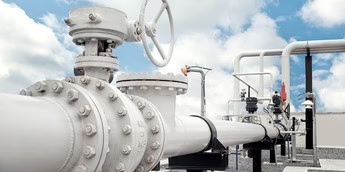Afreximbank has launched a $3 billion revolving oil import financing programme to reduce Africa’s heavy dependence on imported fuel.
The programme will support the purchase of refined petroleum products from African refineries by African and Caribbean buyers.
It is expected to finance between $10 billion and $14 billion in intra-African petroleum imports over time.
The initiative will help countries cut the $30 billion they spend annually on imported fuel due to poor refining capacity.
Afreximbank aims to promote trade within Africa, industrial growth, and job creation through this programme.
It supports the goals of the African Continental Free Trade Area (AfCFTA), especially on energy security and economic resilience.
Programme to Strengthen African Refining and Logistics Capacity
Afreximbank is also the largest financier of the Dangote refinery, which started operations in January 2024.
It is funding the Lobito Refinery, the Cabinda Refinery, and the refurbishment of the Port Harcourt Refinery in Nigeria.
The bank has also approved financing for the Bua and Azikel refineries to increase local refining capacity.
It continues to support Société Ivoirienne de Raffinage (SIR) in Côte d’Ivoire with ongoing trade finance.
These efforts aim to create over 1.3 million barrels per day in refining capacity across Africa.
The programme targets oil traders, governments, banks, and state-owned enterprises seeking refined products from African refineries.
Eligible products include petrol, diesel, jet fuel, kerosene, and heavy fuel oil, among others. Applicants must meet Know Your Customer (KYC) requirements and provide letters of credit or trade instruments.
The programme will also allow prepayment and direct advances to eligible African refineries. ATDC Minerals (ATMIN), Afreximbank’s trading arm, will join in trading and financing with key African oil traders.
Also Read: Afreximbank Opens First African Trade Centre in Abuja
Leaders Praise the Initiative
Commenting on the programme, Professor Benedict Oramah said:
“This programme would galvanise efforts towards making the Gulf of Guinea a key refining hub. Whilst the programme will have a direct impact on the volume of the refined petroleum products produced and consumed in Africa, it will also have a multiplier effect on the downstream petroleum value chain as it will catalyse critical investments in shipping and marine logistics for intra and extra African trade of crude oil and refined products.
“The multiplier effect will also be seen in marine cargo insurance and other ancillary businesses within the sector. We want to see an increased proportion of the about 4 mbpd of crude oil produced in the Gulf of Guinea refined in Africa.”
President of Malawi, Dr. Lazarus Chakwera, added:
“This programme is a clear demonstration of Africa’s resolve to take charge of its own energy future. We commend Afreximbank for this timely intervention, which stands to benefit African countries like Malawi by reducing import dependency, strengthening regional supply chains, and keeping more value within the continent.
“Most importantly, it will deliver real impact to our citizens by ensuring more stable and affordable access to refined petroleum products, which are essential to Malawians’ daily life and economic productivity.”
The programme marks a major step in Africa’s journey to control its energy future and boost trade among its nations.

